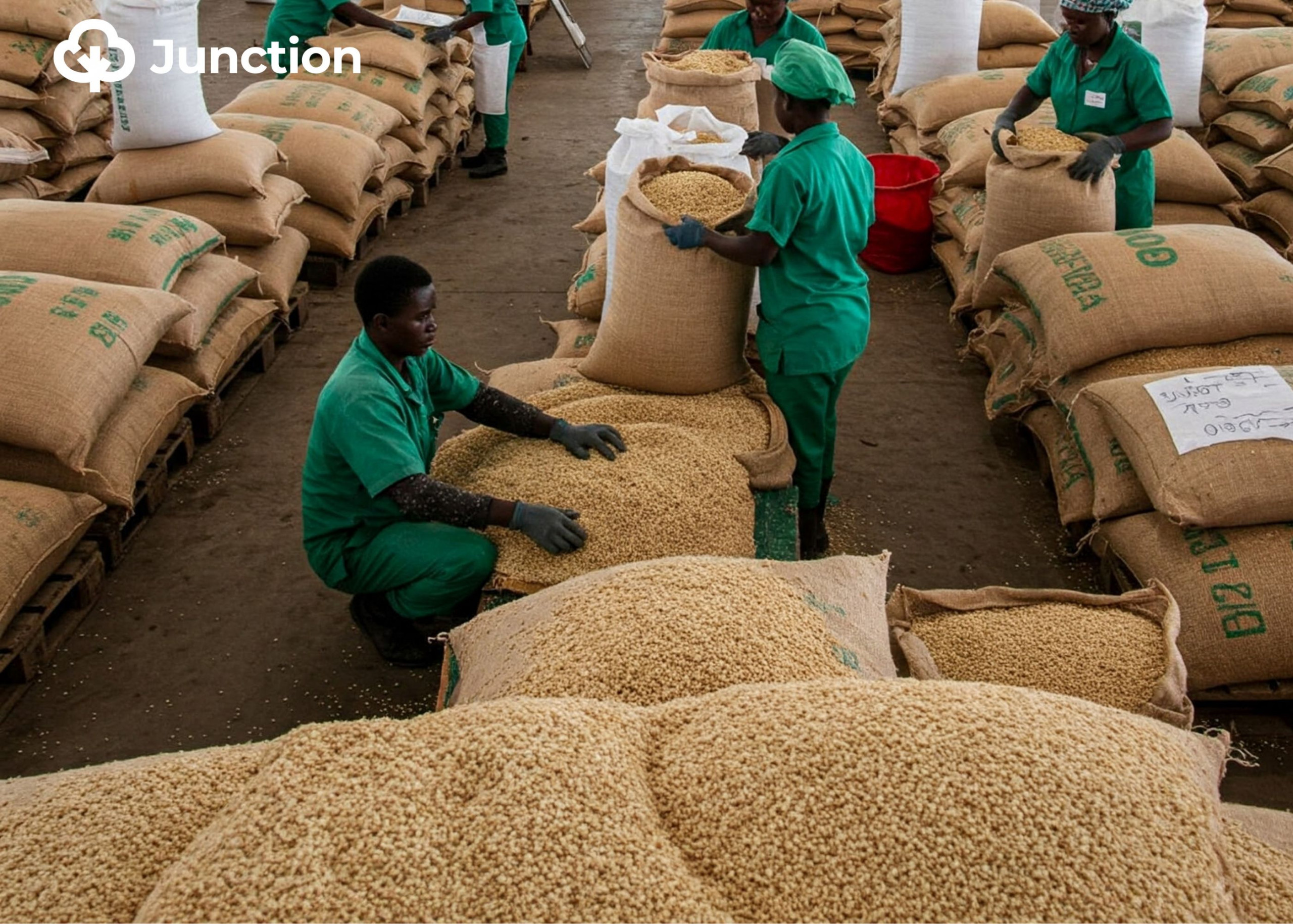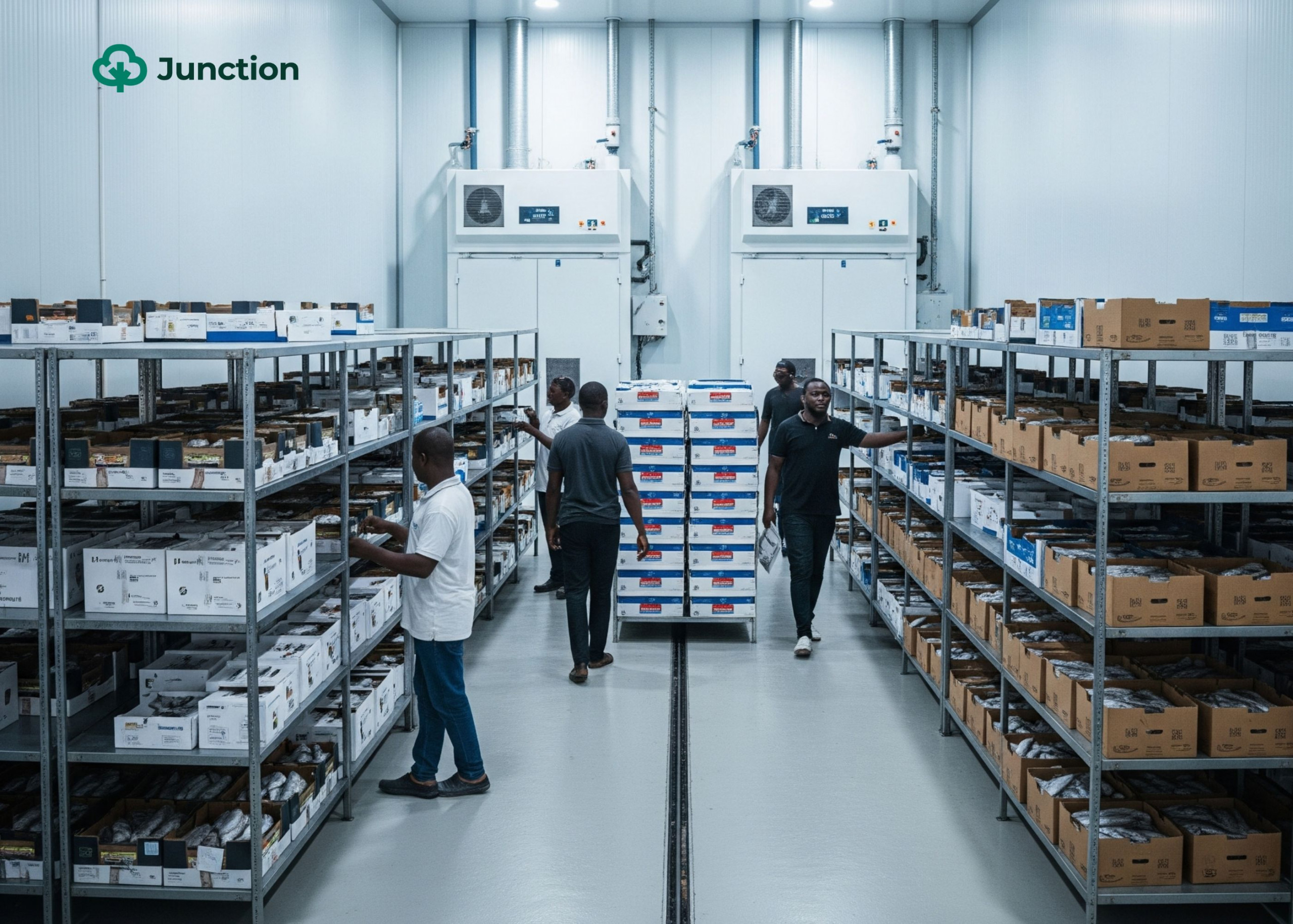Nigeria holds enormous potential in sesame production, both as a top producer and an emerging player in global trade. According to the Food and Agriculture Organization (FAO), Nigeria ranked as the fifth-largest producer of sesame seeds globally in 2023. Despite this, the country lags in global exports, placing eighth among sesame-exporting nations.
Still, demand is rising. Sesame, also known as sesamum seeds, has remained Nigeria’s second most valuable agricultural export for two consecutive years. The National Bureau of Statistics (NBS) reports that sesame seed exports were valued at ₦253.7 billion in 2023, surging to ₦612.7 billion in 2024, reflecting a growing global appetite and untapped local potential.
Value addition and export diversification are key to unlocking even more benefits from sesame. By investing in cleaning, grading, packaging, and even oil extraction, Nigerian producers can fetch higher prices and access premium markets. This also reduces overdependence on raw exports and boosts job creation across the value chain.
For agribusiness investors and young entrepreneurs, this presents a golden opportunity. With increasing demand, supportive government policies, and vast arable land, sesame offers a scalable entry point into export agribusiness. Smart players who act now can position themselves as industry leaders in this high-growth sector.
This article serves as a practical guide for anyone looking to start a sesame export business in Nigeria. It breaks down the process into five clear steps, offering insights on registration, sourcing, logistics, and finding buyers, helping new exporters navigate the market with confidence and clarity.
Step 1: Understand the Sesame Value Chain and Export Potential
Nigeria’s sesame cultivation is spread across at least ten states, particularly in the North and Central regions. Jigawa and Nasarawa are the top-producing states, followed by Benue, Taraba, Kano, and others. These regions benefit from favourable weather conditions and suitable soil types, making sesame a key cash crop for thousands of smallholder farmers.
Globally, the demand for sesame seeds remains strong, driven by their use in oils, snacks, health foods, and cosmetics. China, Türkiye, Japan, India, and Saudi Arabia are the top importers, with most of Nigeria’s exports going to countries in Asia and the Middle East.
Export volume has fluctuated between 140,000 to 180,000 tonnes per year in recent times.
There is a promising opportunity for farmers, processors, and exporters to get involved in the value chain. There are different entry stages for interested participants, from farming to packaging and export.
For farmers, sesame is a drought-resistant crop that thrives in semi-arid regions, making it ideal for many parts of Nigeria. It requires minimal inputs compared to other cash crops and can be intercropped with grains, increasing land productivity. Processors and aggregators benefit from strong local and international demand, while exporters enjoy access to high-value markets in Asia and the Middle East.
Beyond farming, opportunities exist in cleaning, grading, packaging, branding, and logistics. Each stage adds value, creates jobs, and boosts income for entrepreneurs and communities.
However, the value chain has some key challenges you should note. Climate variability affects planting and harvesting timelines, impacting yields. Post-harvest losses due to poor drying, storage, and handling can significantly reduce product quality and market value. Lastly, limited access to structured markets and international buyers prevents many producers from scaling up. Overcoming these hurdles through better infrastructure, training, and policy support can unlock even greater value across the sesame ecosystem.
Step 2: Register Your Business and Get the Right Licenses
Starting a sesame export business in Nigeria begins with proper registration and compliance with regulatory requirements. The first step is to register your business with the Corporate Affairs Commission (CAC). This gives your business legal recognition and is essential for operating formally. You can register as a sole proprietorship, partnership, or limited liability company, depending on your business structure and future goals.
Once your business is registered, the next step is to obtain an export license from the Nigerian Export Promotion Council (NEPC). This license authorises you to export goods legally out of Nigeria and also connects you to training, networking opportunities, and promotional support from NEPC.
Other important certifications may be required, especially when targeting specific international markets. These include the SONCAP certificate (issued by the Standards Organisation of Nigeria), which ensures your goods meet quality and safety standards, and the phytosanitary certificate, which is needed for exporting agricultural products to show they are pest- and disease-free. If you are processing sesame into oil or other products, you may also need NAFDAC registration.
It’s also important to secure a Tax Identification Number (TIN) and open a corporate bank account, as these are necessary for international transactions, accessing trade finance, and processing export documentation.
Finally, consider joining industry associations or trade groups, such as the Sesame Seed Association of Nigeria or the National Sesame Producers and Marketers Association. These groups offer valuable support, including market insights, policy updates, access to bulk buyers, and collective bargaining power. Being part of a network can also improve your credibility and open doors to partnerships and government-backed export initiatives.
Step 3: Source Quality Sesame Seeds and Build Farmer Relationships
Sourcing export-quality sesame is a critical step in building a successful sesame export business, especially if you don’t own a farm.
You can source sesame seeds either directly from farmers in top-producing states like Jigawa, Nasarawa, Benue, and Taraba, or through licensed aggregators and commodity markets who already handle bulk purchases. While aggregators offer convenience and volume, buying directly from farmers allows better control over quality and pricing.
Quality control is essential for meeting international standards. Export-quality sesame must have low moisture content (typically below 6%), be free of stones, dirt, and pests, and be properly graded and cleaned. Many buyers require standardized sorting and packaging using jute bags or food-grade sacks, with correct labelling and weight specifications. Poor handling can result in rejected shipments and financial loss, so investing in basic processing and quality assurance is crucial.
Traceability is becoming increasingly important, especially in markets like Europe and Japan. Being able to trace your sesame back to the farm of origin ensures transparency and builds trust with buyers. It also supports sustainable sourcing, which is now a key requirement for many global importers.
To ensure consistent supply and quality, it’s wise to build long-term relationships with reliable farmers or cooperatives. These relationships foster loyalty, reduce supply chain risks, and allow for better communication around quality expectations.
Additionally, consider contract farming or outgrower schemes, where you provide inputs or training to farmers in exchange for guaranteed off-take. This model not only strengthens your supply chain but also empowers rural farmers, creating a win-win situation. With the right sourcing strategy, your sesame export business can consistently meet global demand and maintain a strong reputation in the international market.
Step 4: Understand the Export Process and Logistics
Exporting sesame seeds from Nigeria involves a structured process that requires careful planning, proper documentation, and coordination with key logistics players. The first step is ensuring you have all the necessary export documents, including your NEPC export license, Bill of Lading, Commercial Invoice, Packing List, Certificate of Origin, and Phytosanitary Certificate for agricultural products. These are required for customs clearance and to meet the destination country’s import requirements.
Next, choosing a reliable freight forwarder and licensed customs agent is crucial. A good freight forwarder helps handle logistics, including booking cargo space, managing paperwork, and advising on shipping options (e.g., full container load or less-than-container load). Customs agents assist with clearing your goods through Nigerian ports, ensuring compliance with local regulations and avoiding unnecessary delays or penalties.
Packaging and labeling must meet international standards. Sesame is typically packed in 50 kg jute bags or polypropylene sacks, which allow ventilation and prevent mold. Labels should include product details, weight, origin, batch number, and exporter contact information. Proper packaging protects your product and boosts your brand’s reputation with buyers.
In Nigeria, the most commonly used ports for sesame export are the Apapa and Tin Can Island ports in Lagos and the Onne Port in Port Harcourt. Lagos ports are more popular due to better connectivity and export infrastructure, but congestion can affect turnaround time.
Cost implications vary depending on the quantity and destination. Exporters should budget for transportation to the port, storage or warehousing, clearing fees, container handling charges, and freight costs. Shipping timelines can range from 3–6 weeks depending on the destination. Planning and working with experienced logistics partners can reduce delays and help your sesame export business run smoothly and profitably.
Step 5: Market Your Sesame Seeds and Find Buyers
Finding international buyers is a crucial step in launching a successful sesame export business. Nigerian exporters can leverage various channels, including trade fairs such as the Lagos International Trade Fair and international expos focused on food and agriculture. These events provide valuable networking opportunities with potential buyers and distributors. Online B2B platforms like Alibaba, TradeKey, and Made-in-China also connect exporters to a global marketplace. Additionally, the Nigerian Export Promotion Council (NEPC) offers the Exporters Directory and Buyer Connect programs to link exporters with vetted foreign buyers.
Creating a strong export pitch is essential. Your presentation should highlight your product quality, sourcing process, certifications, packaging standards, and production capacity. Including high-quality photos, certificates, and company profiles adds credibility and attracts serious buyers.
Use digital tools like social media, a simple website, or online catalogs to showcase your sesame offerings. Platforms like LinkedIn, WhatsApp Business, and Instagram can help you reach targeted audiences and build visibility.
Offering samples allows buyers to verify product quality before placing bulk orders. Ensure your pricing strategy is competitive and transparent, considering both market rates and your profit margins. Building trust through prompt communication, consistency, and professional documentation can lead to long-term buyer relationships.
For beginners, working with export agents or brokers can ease market entry. They help with negotiations, logistics, and buyer outreach while you focus on sourcing and quality. As your business grows, you can gradually build direct relationships with international clients.
Conclusion
Starting a sesame export business in Nigeria is easier when broken down into five simple steps: understand the value chain, register your business and obtain licenses, source high-quality seeds, handle export logistics, and find international buyers. Each step equips you with the tools to tap into a fast-growing global market.
Sesame export offers a high-potential, low-barrier entry point for agribusiness investors and young entrepreneurs. With rising international demand and Nigeria’s position as a top producer, the opportunities are ripe for those willing to leap.
Proper planning, access to the right networks, and staying compliant with regulations are key to long-term success. Fortunately, there is support available—from the Nigerian Export Promotion Council (NEPC) to the Bank of Industry (BOI) and private export advisory services—to guide you through the process.
Now is the best time to explore the global sesame market from Nigeria. Whether you’re a farmer, processor, or trader, the path is clear to scale and succeed.



